The International Business Consultancy Project is the capstone of the Full-time MBA. Our MBAs work in multinational teams to pitch for a client with a global business challenge, then undertake three months of full-time consultancy with international travel. This year, one team worked with the University's Graphene Engineering Innovation Centre (GEIC) to identify new opportunities in the energy storage market.
Graphene was first isolated in 2004 by two researchers at The University of Manchester, Professor Andre Geim and Professor Kostya Novoselov. Andre and Kostya won the Nobel Prize in Physics for their pioneering work. Graphene is the lightest, most conductible material on earth with potential applications across many fields - from medicine to energy. The project took our MBAs overseas to Germany, France, the USA and India. We caught up with them to find out more.
Why did you choose this client brief?
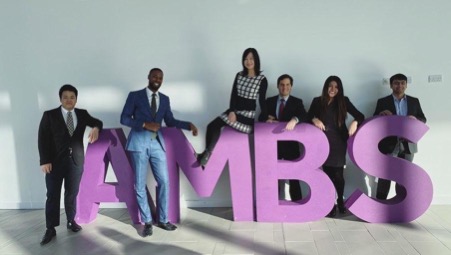
The Graphene Engineering Innovation Centre (GEIC) is an R&D facility at The University of Manchester, which focuses on driving the commercialisation of graphene and other 2D materials. The project aimed to provide a strategic market study to find potential market opportunities for GEIC in the Energy Storage Device (ESD) space (supercapacitors and batteries in particular).
We chose this project because it was very comprehensive: it included market research, partnership identification, financial modelling and projection. The team members could therefore utilise their different skill sets to contribute to the project. In addition, the energy storage device industry presented a new market for the team to explore and develop knowledge of.
How did you approach the brief?
The team used a 'bottom-up' approach instead of the traditional 'top down' methodology to analyse the key findings and provide recommendations. This idea came from our supervisor, Dr. Mike Arundale, who gave us a lot of support during the project. To be specific, the team produced a detailed case study of one specific company for each market segment, then made a projection for that segment and finally analysed the whole industry.
Which countries did you travel to and why?
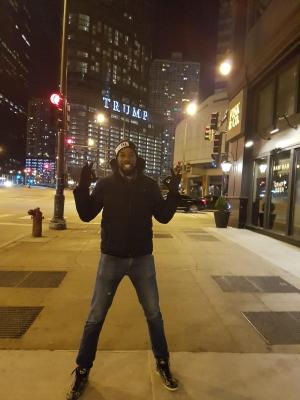
Based on the secondary research, the team identified the USA, China, South Korea, Japan, India, Germany and France as the potential markets for GEIC to focus on and explore future partnership opportunities in. 45 interviews were held across Germany, France, the USA, China and India between February 6 and March 13, 2020.
Due to the unexpected Coronavirus situation, in the end the team was only able to travel to the USA, India, Germany and France. This meant that 30 of the interviews were held face-to-face and 15 were conducted by conference call with Chinese, Japanese and South Korean companies.
What was the biggest challenge and what was the biggest achievement?
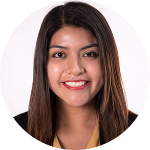
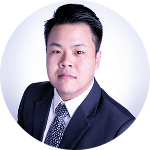
"The most challenging task was getting connections for primary research. My project was to search for partnerships for the client in three major markets: the USA, Europe and India. As we needed to build connections from scratch for face-to-face interviews or site visits, my team discussed how to ‘tackle’ interviewees strategically with the best professional practice in order to build professional relationships and get appointments for in-person interviews."
"The biggest achievement was reaching out to potential partners for our client. Since our client's business is based on the licensing fee from partners, the potential deals are red blood being pumped to the heart of the business." - Pann Boonyavanich, Thai
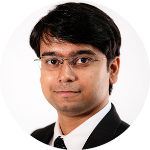
"The biggest challenges were developing a good technical understanding of graphene as a 2D material and its numerous applications, which span multiple industries, and understanding the advantages of graphene and how it can be used in real-life applications. These elements were key to delivering the commercial aspects of the project. This became further challenging because the technology is quite nascent and there is not a lot of in-depth information available on the internet, which resulted in the team having to rely mostly on primary research."
"The biggest achievement was the team being able to successfully navigate the uncertainty brought on by the Covid-19 crisis and deliver on all the deliverables outlined in the project." - Ritwick Mukherjee, Indian
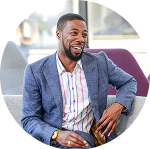
"For me, the biggest challenge was finding the relevant people to interview, getting them to agree to an interview and then fitting this into our travelling window. Some people were on annual leave and some could not meet with us for reasons related to Covid-19. Others did not reply till we were actually in the US, and a couple of companies worked with the US military and therefore most of their operational information was classified. Pann and I were on the east coast of the US and had to manage travelling and interviews in Boston, New York, Tennessee, Detroit and Chicago. Memorable journeys to interview potential partners include taking four flights in one day (a round trip from New York to Tennessee); and driving for six hours through a snowstorm to get to an interview in Chicago."
"The biggest achievement was realising during an interview that the company had synergies, problems or solutions that would match well with our client. It was very rewarding to be able to provide partnerships that would generate new revenue streams for our client and therefore justify their faith and investment in our team. Getting closer to each other and working well as a team was also a big achievement." - Timeyin Akerele, British-Nigerian
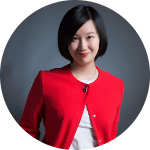
"Apart from the above mentioned by my team members, I also want to highlight that we had to change our interview plan entirely from China to Europe within just one week. We did the research again and identified Germany and France to replace the original destination, China, due to the unexpected Coronavirus situation. It was intensive to replan the interview travel and redo the budget, but it was also a valuable learning experience. This has motivated me to always be resilient when faced with uncertainties."
"The biggest achievements were, firstly, the team successfully helped the client find potential partners with detailed contacts for further discussion by using a new approach, the 'bottom-up' approach. Secondly, the team had a great chance to gain knowledge of the energy storage devices industry, and the value that advanced materials such as graphene can bring to the industry. Personally, I had no knowledge of this before." - Xingbo Wu, Chinese
What were the results and recommendations?
The total market size of supercapacitor applications globally is worth around £2.27 billion in 2020, with a compound annual growth rate of ~20% between 2020-2030 and three key application industry segments: consumer electronics, automotive and power grid.
Companies that have an R&D gap that could be filled by graphene, in order to better meet customer demands, are potential partners for GEIC. For example, large manufacturers who lack supercapacitor product lines, or small manufacturers.
When targeting potential partnerships, the team recommended that GEIC should highlight its competitive position. GEIC is the only establishment offering capabilities in graphene, batteries, supercapacitors and biomedical fields, with a focus on both research and the commercialisation and scale-up of new technologies.
How would you sum up your experience in three words?
Lissete: Challenging - Teamwork - Fun
Pann: Dynamic - VUCA (volatility, uncertainty, complexity and ambiguity) - Exciting
Ritwick: Pushing - New - Frontiers
Timeyin: Amazing - Unpredictable - Teamwork
Xingbo: Uncertain - Unforgettable - United

